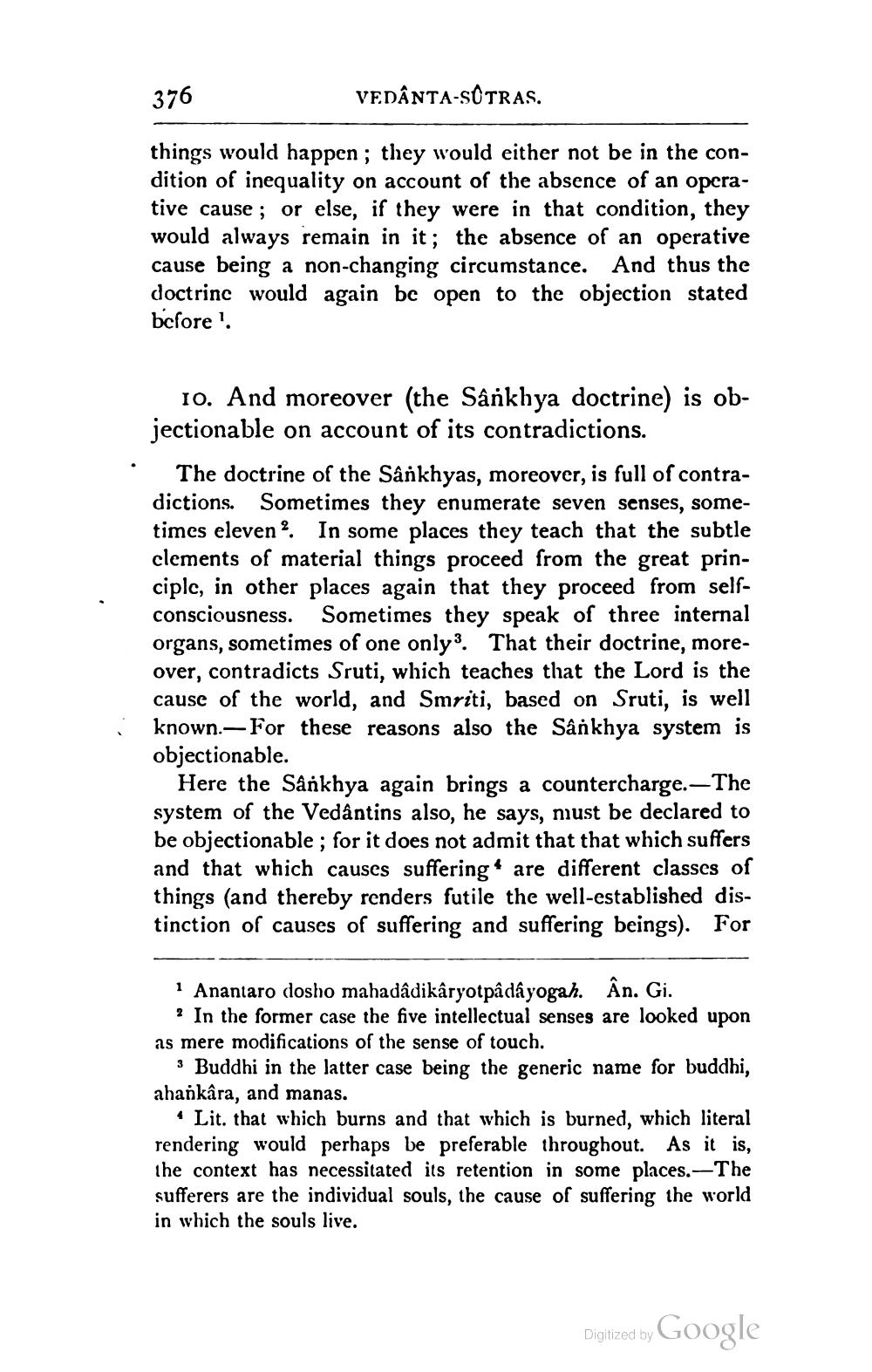________________
376
VEDÂNTA-SOTRAS.
things would happen; they would either not be in the condition of inequality on account of the absence of an operative cause ; or else, if they were in that condition, they would always remain in it; the absence of an operative cause being a non-changing circumstance. And thus the doctrinc would again be open to the objection stated bcfore !
10. And moreover (the Sânkhya doctrine) is objectionable on account of its contradictions.
The doctrine of the Sankhyas, moreover, is full of contradictions. Sometimes they enumerate seven senses, sometimes eleven? In some places they teach that the subtle clements of material things proceed from the great principlc, in other places again that they proceed from selfconsciousness. Sometimes they speak of three internal organs, sometimes of one only. That their doctrine, moreover, contradicts Sruti, which teaches that the Lord is the cause of the world, and Smriti, based on Sruti, is well known. For these reasons also the Sânkhya system is objectionable.
Here the Sankhya again brings a countercharge.—The system of the Vedântins also, he says, must be declared to be objectionable ; for it does not admit that that which suffers and that which causes suffering are different classes of things (and thereby renders futile the well-established distinction of causes of suffering and suffering beings). For
Anantaro dosho mahadâdikâryotpâdâyogah. Ân. Gi. ? In the former case the five intellectual senses are looked upon as mere modifications of the sense of touch.
3 Buddhi in the latter case being the generic name for buddhi, ahankara, and manas.
Lit. that which burns and that which is burned, which literal rendering would perhaps be preferable throughout. As it is, the context has necessitated its retention in some places.--The sufferers are the individual souls, the cause of suffering the world in which the souls live.
Digized by Google




